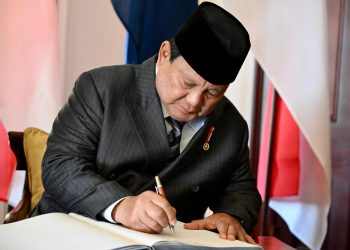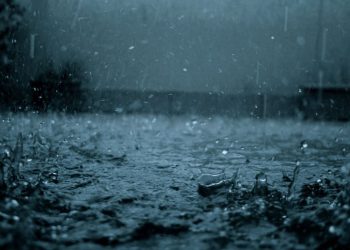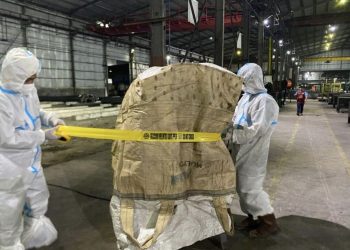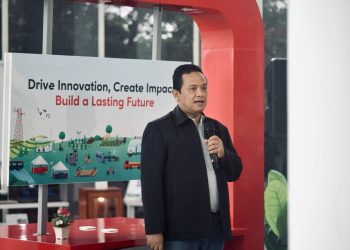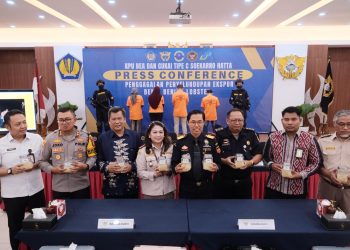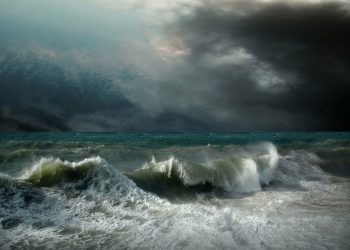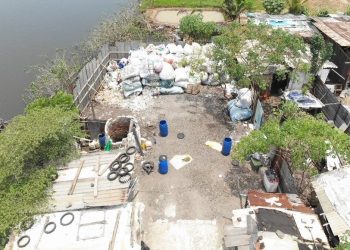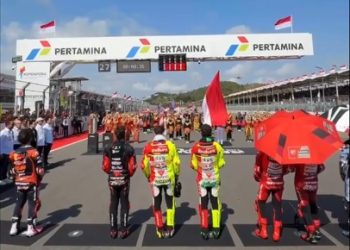Jakarta – For more than 30 years, Dedi Supriadi has been engaged in research in the field of Maritime Anthropology. His research focus on fishermen and coastal communities has led to a career not only as a researcher, but also as a consultant and advocate.
“Fishermen and coastal communities are not only a community that complements the diversity in the country, but they serve an important function in the life of the nation. However, coastal development tends to marginalize them,” said Dedi Supriadi, Principal Researcher at the Center for Research on Society and Culture, National Research and Innovation Agency (BRIN), as quoted on BRIN’s website in Jakarta, Wednesday (10/5/2023).
In a scientific journal entitled Coastal transitions: Small-scale fisheries, livelihoods, and maritime zone developments in Southeast Asia, Dedi and 13 academics from various countries highlight coastal development and its relevance to the lives of fishermen in Southeast Asia.
According to Dedi, fishermen and coastal communities are at the forefront of the nation’s food security, especially fish, which is the main source of protein.
In Indonesia, 14.8 million tons of fish production was supplied by fishermen through capture and culture in 2019. But all this time, fishermen and coastal communities tend to be seen as poor communities and a burden on the state.
“On the one hand, that point is true. But on the other hand, catching fish is not something easy, it requires sufficient knowledge and skills. Fishermen are among the most dangerous livelihoods in the world, their lives are at stake,” said the winner of the 2023 BRIN Researcher Award.
If you look deeper into reality, he explained, by calculating the number of ships operating in Indonesian waters, 96 percent are vessels of 10 gros tons and below. In legal language, they are small fishermen, fishermen who we often consider uneducated and tend to be considered stupid.
“In terms of formal knowledge, they may be people who only have the majority of formal education in elementary school. But that does not mean they are stupid in their field of work. As fishermen, they are smart,” said Dedi.
Fishermen’s knowledge, said Dedi, is not ‘canned’. Fishermen have knowledge of fish behavior, fish habitat, fish season, and the operation of fishing gear.
“It is important for fishermen to be considered and protected, because their function is not only for their community, but also for this nation,” he said.
In his research, Dedi collaborated with colleagues from 14 non-governmental organizations (NGOs) to identify at least 1,251 fishing units and coastal communities that implement tradition-based coastal and fisheries management. In other words, there are 140 million Indonesians living on the coast.
“Coastal management is not an easy thing to do, especially by the government, which has been using a top-down policy approach,” said the man born 59 years ago.
Indonesia’s coastal landscape is very long. Meanwhile, the government has limited capacity both in terms of finance, knowledge, and the number of human resources, to be able to carry out coastal management properly.
On the other hand, fishermen and coastal communities have been practicing coastal management according to tradition, either independently or with the help of NGOs.
One of the researches that Dedi has done is about Hak Ulayat Laut, the concept of communal ownership in the coastal sea. The general opinion is that the sea has no owner and is only controlled by the state.
In reality, fishing communities and coastal communities claim that the sea is their management area or ulayat. This practice is mainly found in Papua, Maluku and North Sulawesi, where coastal communities consider that the sea and natural resources on the coast are part of the property or territory that they manage traditionally.
“This means that anyone who enters the area must follow local rules, such as who can catch fish, how to do it, what tools to use, and so on,” explains Dedi.
Each community has different local rules in maintaining coastal ecosystems, such as the prohibition of cutting mangroves, the prohibition of damaging coral reefs, octopus fish management, sea cucumber resource management, and so on.
“Such rules are not easily agreed upon and implemented together if they are formulated top-down by the government. Because it often does not match the reality of the community on the ground,” said Dedi.
Marginalized
In fact, coastal development often marginalizes fishermen and coastal communities. In Indonesia since the 1980s, there has been conversion from mangrove land to oil palm plantations.
For example, Dedi conducted research from 2018 to 2019 in Lubuk Kertang, North Sumatra. There, there was a massive conversion of mangrove land into oil palm, which could ‘kill’ the lives of fishermen there.
“Because the land conversion changes the hue of the environment, the hue of the ecosystem, the waters are no longer fertile,” he said.
Another example is the reclamation of artificial islands in Jakarta Bay. This threatens the livelihoods of 25,000 fishing households and green mussel farmers in the dredging area.
Not only that, land conservation also affects the social fabric of the coast. The Lamalera community in East Nusa Tenggara, for example, is famous for its whale hunting tradition.
When the Lamalera coastal area is declared a conservation area, the whale hunting culture is threatened with extinction. Whale hunting is not only useful for consumption purposes.
There is a regulation on who has what rights in terms of ownership and boat construction. Then it relates to the distribution of the catch to anyone, including to community leaders, the poor, and orphans. “So the practice of whale hunting guarantees the food security of the community,” said Dedi.
Not to mention, whales are a commodity in the bartering tradition that connects the Lamalera community and the surrounding mountain communities. This tradition is very important to maintain a harmonious relationship between the Lamalera community and the surrounding communities. Thus, land conservation can threaten their social integrity.
Actually, Dedi continued, the government has a number of laws and regulations that protect and recognize the rights of fishermen and coastal communities. However, in practice, out of thousands of fishing communities and coastal communities, only 32 communities are recognized and protected by the government.
In fact, this protection is not only for the needs of their own community, but the nation. This is because their management practices contribute to the maintenance of coastal and marine ecosystems, fisheries, and also the maintenance of social order in the community.
“So what benefits if they are protected and strengthened is actually not only them, but this nation,” said Dedi.
On various occasions such as in national and international scientific forums, as well as in real action movements and during advocacy, he said that there was a mistake in government policy.
He suggested collaborative management, one of which could be in the form of strengthening community-based management practices by the government.
“So actually the designs of coastal and fisheries management must be collaborative now. It is no longer top-down from government regulations that are often incompatible with the reality on the ground,” he said.
Dedi also suggested correcting the misconception that fishermen and coastal communities are poor communities and other bad characteristics.
This must be corrected, by proposing the reality that they also have strengths that are not owned by other communities, namely knowledge and practices of fishing and coastal maintenance. In fact, this should be strengthened by the government through its policies.
For him, being a researcher is a 24-hour profession. Researchers must always be aware and alert to the dynamics of daily life, especially related to the research they are exploring.
Building networks is important for researchers. Networking is not only with academics, but also with communities.
It is ingrained in him that fishermen and coastal communities are the ‘teachers’ of life. He absorbed a lot of information, then read the theoretical literature. He then poured this knowledge into various scientific writings, both alone and in collaboration with academics who had the same concern.
For the man who currently serves as the Coordinator of the Cultural Heritage Research Group, coastal communities become study partners, whose knowledge he frames with a certain theoretical framework.
“The real substance is the knowledge of fishermen and some skills. So I feel I have an obligation to say thank you to them, by networking with them, advocating for their rights according to my expertise, and so on,” said Dedi. (InfoPublik/Photo Source: BRIN Public Relations).








